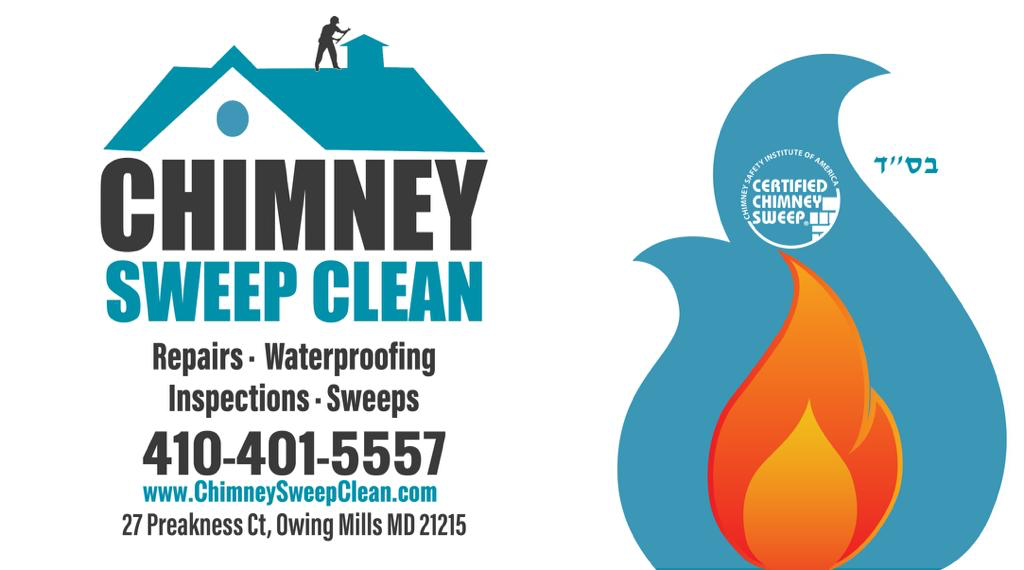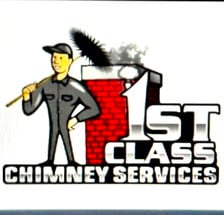
Get matched with top gas log pros in Edgewater, MD
Enter your zip and get matched with up to 5 pros
Need a pro for your gas log service project in Edgewater, MD?
TRUSTED BY EDGEWATER, MD HOMEOWNERS
4.4
Average homeowner rating56
Verified gas log services reviews
Verified Reviews for Gas Log Service pros in Edgewater, MD
*The Angi rating for Gas Log Service companies in Edgewater, MD is a rating based on verified reviews from our community of homeowners who have used these pros to meet their Gas Log Service needs.
*The HomeAdvisor rating for Gas Log Service companies in Edgewater, MD is a rating based on verified reviews from our community of homeowners who have used these pros to meet their Gas Log Service needs.
Last update on January 07, 2026
Find Gas log pros in Edgewater

Chimney Discounters, LLC
Chimney Discounters, LLC
CHIMNEY DISCOUNTERS LLC - is a full - service chimney - company . From small chimney repairs , to full - chimney construction , we're at the ready to tackle your project . With ( 34 YRS OF CHIMNEY EXPERIENCE ) Chimney Discounters LLC is dedicated in providing our customers with the best quality , craftsmanship , and a great - experience. We're looking to build long - lasting relationships & trust with each and every customer , and within the communities that we serve. Chimney Discounters LLC is a leader in providing our customers with the highest quality products craftsmanship in an honest, efficient, and professional way. Our pledge is to always create successful relationships with our customers, employees and community by building trust, treating every project with the utmost integrity and exceeding expectations. We work ( 7- days a week 24 / 7 ) , so no need to miss work because we work around the clock ( including Saturdays & Sundays ) CALL 202-270-4039 to schedule !!
"He called me right away after I called you and even came out on a Sunday. In addition to cleaning my pellet stove, he also did a repair. He did a good job and the price was right. He did a good job and was professional. I will use him again in the future. "
WALTER L on September 2025
CHIMNEY DISCOUNTERS LLC - is a full - service chimney - company . From small chimney repairs , to full - chimney construction , we're at the ready to tackle your project . With ( 34 YRS OF CHIMNEY EXPERIENCE ) Chimney Discounters LLC is dedicated in providing our customers with the best quality , craftsmanship , and a great - experience. We're looking to build long - lasting relationships & trust with each and every customer , and within the communities that we serve. Chimney Discounters LLC is a leader in providing our customers with the highest quality products craftsmanship in an honest, efficient, and professional way. Our pledge is to always create successful relationships with our customers, employees and community by building trust, treating every project with the utmost integrity and exceeding expectations. We work ( 7- days a week 24 / 7 ) , so no need to miss work because we work around the clock ( including Saturdays & Sundays ) CALL 202-270-4039 to schedule !!
"He called me right away after I called you and even came out on a Sunday. In addition to cleaning my pellet stove, he also did a repair. He did a good job and the price was right. He did a good job and was professional. I will use him again in the future. "
WALTER L on September 2025

Masters Chimney & Hearth
Masters Chimney & Hearth
Masters Chimney & Hearth work on chimneys and fireplaces. We repair gas fireplaces and wood pellet fireplace inserts. We inspect, sweep and repair brick masonry chimneys. Masters Chimney & Hearth also installs furnace liners and water heater venting. We sell, install, and service wood pellet stoves, electric inserts, and gas fireplaces.
"Thank you guys! I paid through the website. It was super easy. They did a good job, were very clean, very respectful, and personable too."
Alex B on February 2025
Masters Chimney & Hearth work on chimneys and fireplaces. We repair gas fireplaces and wood pellet fireplace inserts. We inspect, sweep and repair brick masonry chimneys. Masters Chimney & Hearth also installs furnace liners and water heater venting. We sell, install, and service wood pellet stoves, electric inserts, and gas fireplaces.
"Thank you guys! I paid through the website. It was super easy. They did a good job, were very clean, very respectful, and personable too."
Alex B on February 2025

ChimneyTEK
ChimneyTEK
Been in business since 1994, professionally trained at the Chimney Safety Institute of America, Member of the National Chimney Sweep Guild. Licensed by the Maryland Home Improvement Commission, #86685. Family owned and operated. Owner on most major repairs. We are dedicated to serving our customers needs.
"Great job. Repairs finished, new fireplace installed, and chimney cap installed under a short suspense."
Matt M on December 2025
Been in business since 1994, professionally trained at the Chimney Safety Institute of America, Member of the National Chimney Sweep Guild. Licensed by the Maryland Home Improvement Commission, #86685. Family owned and operated. Owner on most major repairs. We are dedicated to serving our customers needs.
"Great job. Repairs finished, new fireplace installed, and chimney cap installed under a short suspense."
Matt M on December 2025

Masters Chimney & Hearth
Masters Chimney & Hearth
We have 15 years of experience with over 1500 satisfied customers.301-352-6853 Specializing in residential chimney repairs, oil and gas furnace relining and pellet stoves.We specialize in fixing water leaks for both masonry and Prefab chase chimneys. National Fireplace Institute (NFI) Gas, Propane and Pellet Certified, Chimney Sweep Institute of America (CSIA) certified, Certified Chimney Reliner (CCR), Certified Dryer Exhaust Technician (CDENT), active member of HPBA, and member National Chimney Sweep Guild. Our commitment to quality is second to none, we pride ourselves in building long term relationships with our clients. We sell,install,clean and repair pellet stoves. The brand we sell is Enviro but we also work on many other brands.We are the premier pellet stove company in the Washington DC and Baltimore area. Other companies only work on the stoves they sell but we service many manufactures and our techs are experienced.
"C"
Tiffany S A on July 2023
We have 15 years of experience with over 1500 satisfied customers.301-352-6853 Specializing in residential chimney repairs, oil and gas furnace relining and pellet stoves.We specialize in fixing water leaks for both masonry and Prefab chase chimneys. National Fireplace Institute (NFI) Gas, Propane and Pellet Certified, Chimney Sweep Institute of America (CSIA) certified, Certified Chimney Reliner (CCR), Certified Dryer Exhaust Technician (CDENT), active member of HPBA, and member National Chimney Sweep Guild. Our commitment to quality is second to none, we pride ourselves in building long term relationships with our clients. We sell,install,clean and repair pellet stoves. The brand we sell is Enviro but we also work on many other brands.We are the premier pellet stove company in the Washington DC and Baltimore area. Other companies only work on the stoves they sell but we service many manufactures and our techs are experienced.
"C"
Tiffany S A on July 2023

First Impression Hardscapes, LLC
First Impression Hardscapes, LLC
First Impression Hardscapes is the premier hardscape artisan in the D.C. metro area, serving Maryland and Washington D.C. We take a custom approach to designing your driveway, walkway, patio, or pool deck in elegant flagstone or stunning, durable pavers. First Impression’s will turn your hardscape fantasies into a First Impression reality! - OUR MISSION: To provide lifestyle changing hardscapes that are aesthetically pleasing, durable, and have eternal value. - OUR VISION: To be the leading hardscape installer in Maryland and Washington D.C. by becoming home and property owners’ first choice for all of their hardscape needs. - OUR HISTORY: First Impression Hardscapes has over 20 years combined experience in serving the D.C. metro area. Our quality of construction is second to none, and we also pride ourselves in having superior customer relations. All of our crews are completely “in house”; we do not use sub-contractors. We are licensed and insured for all of your hardscape needs. No matter how large or small, we are pleased to transform your hardscape fantasies into a First Impression reality! -- Additional email: [email protected].
"Prompt service. We are very happy with the quality of work. We would hire them again."
Jesse T on May 2025
First Impression Hardscapes is the premier hardscape artisan in the D.C. metro area, serving Maryland and Washington D.C. We take a custom approach to designing your driveway, walkway, patio, or pool deck in elegant flagstone or stunning, durable pavers. First Impression’s will turn your hardscape fantasies into a First Impression reality! - OUR MISSION: To provide lifestyle changing hardscapes that are aesthetically pleasing, durable, and have eternal value. - OUR VISION: To be the leading hardscape installer in Maryland and Washington D.C. by becoming home and property owners’ first choice for all of their hardscape needs. - OUR HISTORY: First Impression Hardscapes has over 20 years combined experience in serving the D.C. metro area. Our quality of construction is second to none, and we also pride ourselves in having superior customer relations. All of our crews are completely “in house”; we do not use sub-contractors. We are licensed and insured for all of your hardscape needs. No matter how large or small, we are pleased to transform your hardscape fantasies into a First Impression reality! -- Additional email: [email protected].
"Prompt service. We are very happy with the quality of work. We would hire them again."
Jesse T on May 2025

R&J Quality
R&J Quality
Welcome to R&J Quality, LLC.! We are committed to exceeding your expectations. As experts, we will handle your needs with the high quality expertise, that your home or business deserves. We offer competitive prices, and customer satisfaction is our number one priority. Call us now!
"Great service and quality repair."
Alex D on May 2025
Welcome to R&J Quality, LLC.! We are committed to exceeding your expectations. As experts, we will handle your needs with the high quality expertise, that your home or business deserves. We offer competitive prices, and customer satisfaction is our number one priority. Call us now!
"Great service and quality repair."
Alex D on May 2025

Chimney Sweep Clean
Chimney Sweep Clean
Who we are Chimney Sweep Clean LLC is a chimney cleaning and masonry repair company, which has been cleaning, sweeping, and restoring chimneys in the state of Maryland in Baltimore city and county for many years. We are determined to satisfy our customers expectations and more. Our team is built out of experienced professionals, each member is experienced and knowledgeable granting our clients the highest quality service in a timely and cost-effective manner. How we work Our chimney sweep services are insured and licensed. We provide personalized service, enabling us to understand each and every client’s unique needs. We specialize in: chimney sweep, masonry repair, flashing repair, tuck pointing, real estate inspections, creosote removal, crown waterproofing and relining for fireplaces, furnaces and boilers. Our vision We love cleaning and repairing chimneys so you can enjoy sitting near your fireplace. Our goal is for you to enjoy your house worry-free. Call us today to get a free quote.
"This is a well equipped company and the owner and employees are very knowledgeable of the their craft. They show up on time, cover the floor and bri g all the tools needed to complete the job in a timely manner. I would recommend this company to my friends and family."
Robert B on July 2021
Who we are Chimney Sweep Clean LLC is a chimney cleaning and masonry repair company, which has been cleaning, sweeping, and restoring chimneys in the state of Maryland in Baltimore city and county for many years. We are determined to satisfy our customers expectations and more. Our team is built out of experienced professionals, each member is experienced and knowledgeable granting our clients the highest quality service in a timely and cost-effective manner. How we work Our chimney sweep services are insured and licensed. We provide personalized service, enabling us to understand each and every client’s unique needs. We specialize in: chimney sweep, masonry repair, flashing repair, tuck pointing, real estate inspections, creosote removal, crown waterproofing and relining for fireplaces, furnaces and boilers. Our vision We love cleaning and repairing chimneys so you can enjoy sitting near your fireplace. Our goal is for you to enjoy your house worry-free. Call us today to get a free quote.
"This is a well equipped company and the owner and employees are very knowledgeable of the their craft. They show up on time, cover the floor and bri g all the tools needed to complete the job in a timely manner. I would recommend this company to my friends and family."
Robert B on July 2021

First Class Chimney Services, LLC
First Class Chimney Services, LLC
First Class Chimney Services' experienced technicians arrive when they say they will. We provide a level of customer service satisfaction in the chimney business. Our Certified Chimney Technicians are experts in regular cleanings, pointing and retouching, and restorations authentic to the original. Our mission is to provide you with the information and quality service you need at a reasonable rate. If at any time within completion of our chimney services should you find a workmanship problem, or anything you are not quite satisfied with, contact us immediately. We will promptly respond to the issue and do our best to make the situation right with you. First Class Chimney Service, LLC would be pleased to hear from you! Please let us know what your needs and questions are; we will be more than happy to help you.
"I told them what they need to do a better job in scheduling. I waited them for 3 hours on Saturday and 2 hours for today and they never showed up."
Terry W on September 2025
First Class Chimney Services' experienced technicians arrive when they say they will. We provide a level of customer service satisfaction in the chimney business. Our Certified Chimney Technicians are experts in regular cleanings, pointing and retouching, and restorations authentic to the original. Our mission is to provide you with the information and quality service you need at a reasonable rate. If at any time within completion of our chimney services should you find a workmanship problem, or anything you are not quite satisfied with, contact us immediately. We will promptly respond to the issue and do our best to make the situation right with you. First Class Chimney Service, LLC would be pleased to hear from you! Please let us know what your needs and questions are; we will be more than happy to help you.
"I told them what they need to do a better job in scheduling. I waited them for 3 hours on Saturday and 2 hours for today and they never showed up."
Terry W on September 2025

GLR Home Improvement
GLR Home Improvement
We have over 30 years experience! Our company is based on the belief that our customers' needs are of the utmost importance. Our entire team is committed to meeting those needs. As a result, a high percentage of our business is from repeat customers and referrals. We would welcome the opportunity to earn your trust and deliver you the best service in the industry.
"Gary's work is excellent and both jobs were completed fast. I am hiring him again for another project."
Lee W on October 2025
We have over 30 years experience! Our company is based on the belief that our customers' needs are of the utmost importance. Our entire team is committed to meeting those needs. As a result, a high percentage of our business is from repeat customers and referrals. We would welcome the opportunity to earn your trust and deliver you the best service in the industry.
"Gary's work is excellent and both jobs were completed fast. I am hiring him again for another project."
Lee W on October 2025

Quality Landscape Services
Quality Landscape Services
Family Owned business for over 10 years, we try to always work with our customers in every possible way that we can always try to give you our best prices and will always assure you 100% Quality work. From landscaping to hardscaping and masonary our proffesional crew will provide you with some of the most fine and quailty wirk and if your not satisfied our job is not done until you are. Give us a call today to set up your free estimate on any project!!!
"Very attentive to cleaning up the job after the job was done."
Ross P on February 2023
Family Owned business for over 10 years, we try to always work with our customers in every possible way that we can always try to give you our best prices and will always assure you 100% Quality work. From landscaping to hardscaping and masonary our proffesional crew will provide you with some of the most fine and quailty wirk and if your not satisfied our job is not done until you are. Give us a call today to set up your free estimate on any project!!!
"Very attentive to cleaning up the job after the job was done."
Ross P on February 2023
The Edgewater, MD homeowners’ guide to gas log services
From average costs to expert advice, get all the answers you need to get your job done.

This guide shares information about the cost to remove a gas fireplace, including the average price to additionally remove the breast, stack, and chimney flue as well as which experts will be needed to complete the project.

With a gas fireplace, it’s important to stay up-to-date on your inspections. Learn more about how much gas fireplace inspections cost before you book one.

Whether it's time for pipe replacement or to hook up the range of your dreams, gas line installation cost is an important line in your budget. Let's take a look.

Keeping your gas fireplace lit shouldn’t be a struggle—but sometimes, it is. If so, you might wonder: Why does my gas fireplace keep going out? Let us explain.

When comparing vented versus ventless gas logs, vented logs are better for ambiance, while ventless gas logs are easier to install and heat a room efficiently.

Understand the top reasons why your oven smells like gas, the severity of the issue, and how to address the causes before calling a pro.
- Riva, MD Gas log pros
- Mayo, MD Gas log pros
- Davidsonville, MD Gas log pros
- Galesville, MD Gas log pros
- Harwood, MD Gas log pros
- Cape Saint Claire, MD Gas log pros
- Shady Side, MD Gas log pros
- West River, MD Gas log pros
- Parole, MD Gas log pros
- Churchton, MD Gas log pros
- Annapolis, MD Gas log pros
- Arnold, MD Gas log pros
- Crownsville, MD Gas log pros
- Deale, MD Gas log pros
- Crofton, MD Gas log pros
- Lothian, MD Gas log pros
- Gambrills, MD Gas log pros
- Tracys Landing, MD Gas log pros
- Stevensville, MD Gas log pros
- Severna Park, MD Gas log pros
- Bowie, MD Gas log pros
- Mitchellville, MD Gas log pros
- Springdale, MD Gas log pros
- Kettering, MD Gas log pros
- Largo, MD Gas log pros
- Westphalia, MD Gas log pros
- Lake Arbor, MD Gas log pros
- Fairwood, MD Gas log pros
- Millersville, MD Gas log pros
- Odenton, MD Gas log pros
- 🌱 "Mow a small front yard"
- 🛠 "Fix a leaking pipe under the sink"
- 🏠 "Repair shingles on an asphalt roof"




